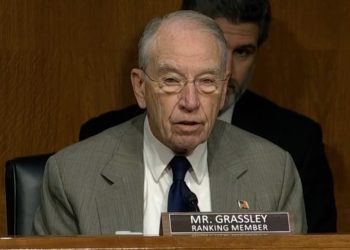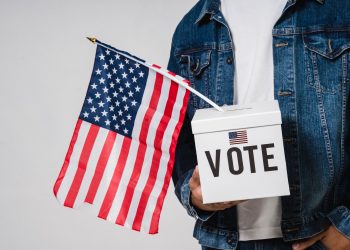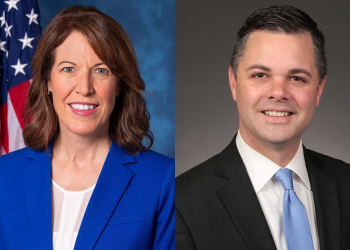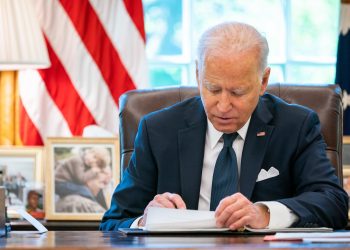WASHINGTON – On Wednesday, U.S. Rep. Cindy Axne, D-Iowa, asked Treasury Secretary Steven Mnuchin and Federal Reserve Chair Jerome Powell questions about COVID-19 aid programs and the need for additional relief. Mnuchin and Powell appeared before the House Financial Services Committee.
“Iowa’s now had increasing unemployment claims for six straight weeks. And, of course, I’d like to remind everybody that we need to pay attention to the level of unemployment, not just the direction. This is all happening when week after week, we see initial claims higher than the worst that we saw in the Great Recession. That’s 36 weeks in a row where we’ve seen record unemployment claims across this country. Meanwhile, the Century Foundation recently estimated 12 million people would lose their unemployment benefits the day after Christmas. If we don’t act on that seems very terrible for this country. Chairman Powell, what are the economic impacts of removing that support at a time when this recovery is so fragile?” Axne asked.
“We would be concerned that the unemployment rate for people in the bottom quartile, for example, is about 20 percent still. And those are people with relatively low savings, low wealth, and we would be concerned that they’d be vulnerable to, you know, losing their houses or their rental and just be in a very difficult place. So we think that’s an appropriate place to look for, for further help,” Powell answered.
“As we all know, one in eight Americans are going hungry, more than 3 million businesses have closed, and we’re approaching 100,000 people now hospitalized with COVID. So I’m wondering for either one of you does seeing this kind of need and the discussion that we’ve had today show the importance of passing another COVID aid package and how quickly do we need to get that done?” Axne asked.
“I would just urge as, as the Secretary has done that, this is a good time, this would really help the economy through these winter months and beyond. And we, again, we can see the path. We can see the vaccines coming in. But we have a bit more of the bridge to build. And I think it would be very important for the economy to receive that help,” Powell answered.
Mnuchin agreed.
Anxe then asked if there were plans to extend the eviction moratorium that expires at the end of the month.
“Well, I think you know, that wasn’t our first choice. Our first choice was really assistance to those people. But I will discuss that with the president,” Mnuchin answered.
Axne asked why Mnuchin would move $455 billion in leftover CARES ACT funding to the Treasury Department’s general fund instead of the Exchange Stabilization Fund.
Democrats believe the transfer is illegal and would require incoming Treasury Secretary appointee Janet Yellen to seek Congress’s authorization to restore those funds to respond to COVID-19. The Treasury Department said the move was within the scope of the law.
“One explanation I’ve seen is that because you think Congress should use this for fiscal aid. And I don’t disagree with that. The problem with this, though, is that if Congress wants to reappropriate money from the Exchange Stabilization Fund, we can do that the same as we can from the general fund. So the only real difference I can see is that leaving it in the ESF makes it a heck of a lot easier for a future treasury secretary to use this money quickly to provide for economic support. So why are you choosing to make it harder to support the economy in the future?” Axne asked.
Mnuchin responded before being cut off by Axne.
“I just want to clarify because there’s a bunch of confusion whether it sits in the general account, whether it sits in the ESF. All of this is completely governed by the law. And as I’ve said, the chair in deference to him, I extended the pre-CARES Act facilities. If I was looking to do something that was political, I wouldn’t have extended those. My results in not extending the CARES Act is merely an administration of my obligation under this law. It doesn’t matter what account it’s in. That has nothing to do… The money is administered pursuant to the law. And if Congress wants to change the law, that’s fine. And the reason why I believe Mitch McConnell has put some new language in isn’t in my interpretation of the law. It’s because many of you say,” he said.
Axne responded saying that Mnuchin’s answer was not accurate.
“The CARES Act is very clear that existing investments can remain there. And that’s what you’ve made happen with the FED’s facilities. So that answer isn’t acceptable. Why are you looking for a way not to help the American people right now? This isn’t your money. It’s taxpayer money, and it should be quickly available to the American people right now,” Axne concluded.















